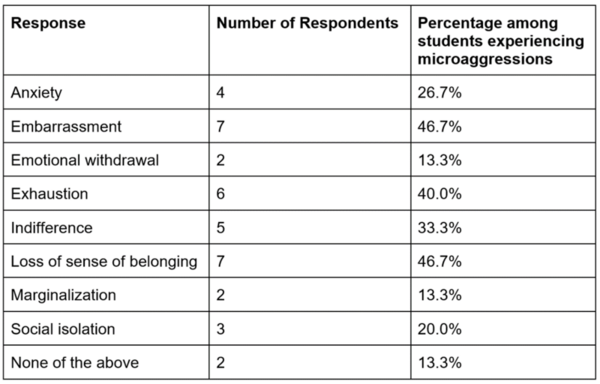The frequency and psychological effects of name mispronunciation in an independent school
(1) The Walker School
https://doi.org/10.59720/23-096
Names are a critical part of human identity. In our study, we wanted to observe the occurrence and psychological impact of microaggressions and name mispronunciation on high school student psychological well-being. Limited research in the area of microaggressions has demonstrated racial associations with name mispronunciation, and negative psychological effects of microaggressions in medical school and university level environments. We hypothesized that a minority of students would be unfamiliar with the term microaggression and more than 50% of students would have experienced a microaggression since the beginning of their first year of high school. We also hypothesized that non-white students would be more likely to experience racial and ethnic microaggressions, including having their names mispronounced. To test our hypothesis, we employed an electronic survey to assess the knowledge of microaggressions, frequency of microaggressions and name mispronunciation, and emotional response to microaggressions and name mispronunciation in high school students and faculty. Our results showed that non-white students were 2.55 times more likely to experience racial or ethnic microaggressions compared to white students. Students experiencing microaggressions most commonly reported feelings of exhaustion, embarrassment, and loss of sense of belonging. Future research with a larger sample size and greater representation among racial groups would be beneficial and would likely yield more statistically significant results. Our study can guide educational components for community members to increase awareness of the negative psychological effects of microaggressions and name mispronunciation.
This article has been tagged with: